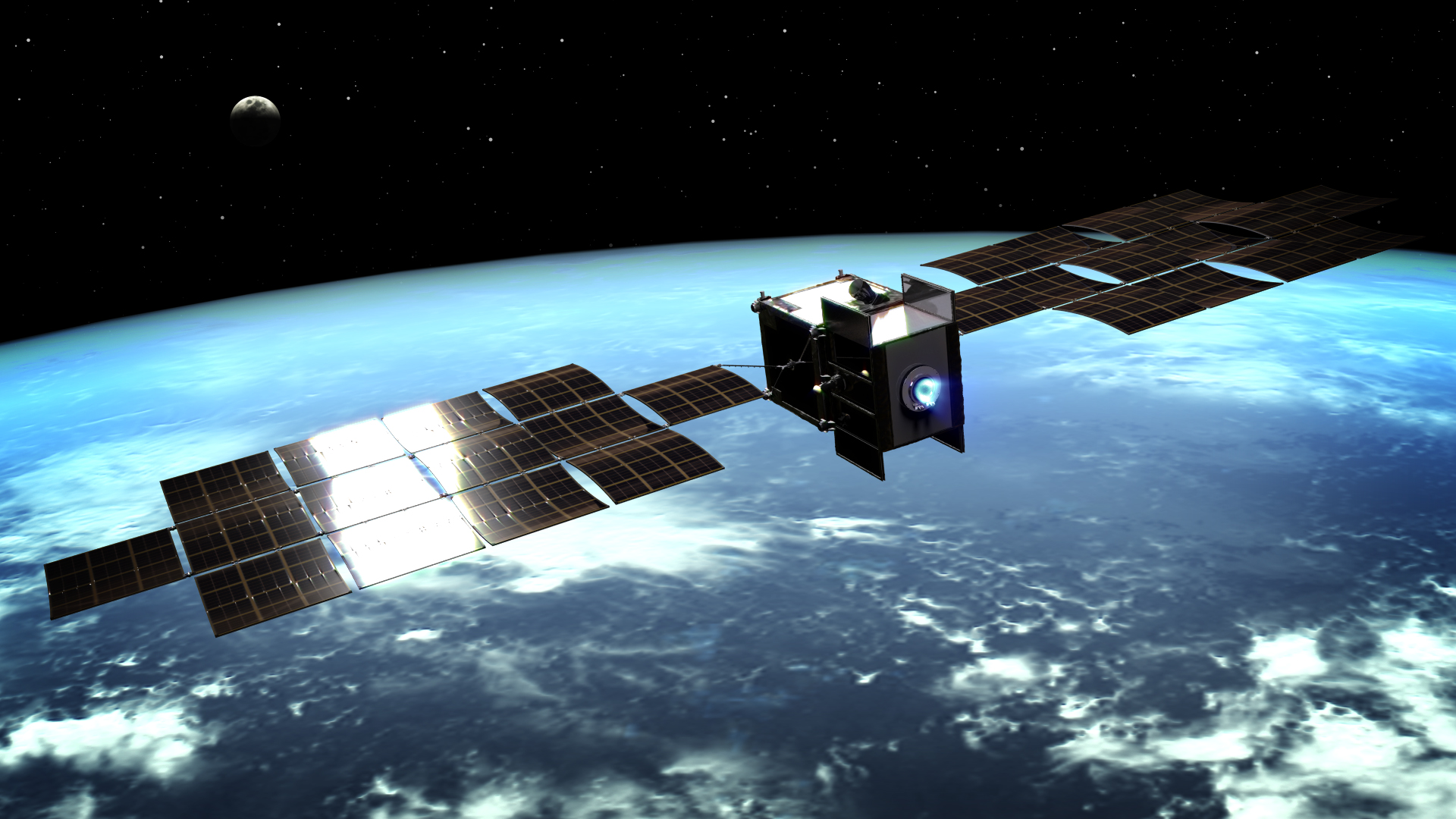The Institute of Space Systems at the University of Stuttgart will take the lead in the development of a new dust telescope for the Japanese interplanetary space probe Destiny+.
Destiny+ stands for "Demonstration and Experiment of Space Technology for INterplanetary voYage for Phaethon fLyby and dUSt analysis”. The probe will be launched in 2022 and will perform a close flyby of the active asteroid 3200/Phaethon after a flight time of 4 years. To date, active asteroids have been little explored. They are the link between inactive asteroids and active comets. The partly short distance between Phaethon and the sun (only 0.14 astronomical units) leads to high surface temperatures on Phaethon, such that high amounts of gas and dust are generated. The larger dust particles distribute along Phaeton’s orbit and each year the Earth passes this debris belt leading to the well known meteor shower of the Geminids. Phaethon has already lost most of its volatile material and only little activity can be detected today. Nonetheless, due to this activity, Phaeton is classified as an active asteroid.

Image: An artistic rendering of Destiny+, Copyright Japanese Aerospace Exploration Agency
During the quick flyby at 25 km/s, remote sensing and in-situ observations will be carried out by Destiny+ and the results promise to improve our understanding of the Solar System.
A multispectral camera will characterize the 6 km-class object from afar and the dust sensor developed at the University of Stuttgart will analyze the surrounding dust cloud along Destiny+‘s trajectory.
Before Destiny+ reaches the asteroid, exact measurements of the interplanetary and interstellar dust environment will be carried out. Of special interest are the elemental composition of the fine interstellar grains and their interaction with the heliosphere.
Destiny+ and DDA thereby establish a bridge between the planetary sciences and astrophysics.
Germany has gained important competencies in the field of space sensor technologies in recent years, especially through Cassini‘s Cosmic Dust Analyzer (CDA) project. Destiny+ is the University of Stuttgart’s next meaningful project in this field. Under the leadership of Dr. Ralf Srama at the University of Stuttgart’s Institute of Space Systems (IRS), preparations are being made for the development of the new space telescope.
The project is being funded by the German Aerospace Center.

